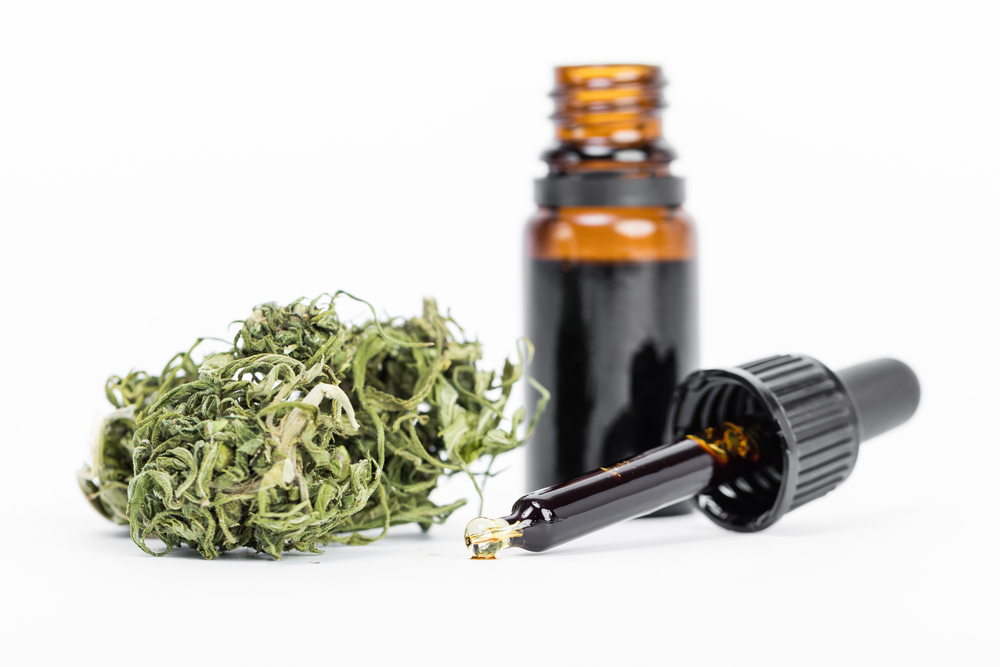Marijuana Extract Reduces Seizures in Kids with Rare Disorder

A highly anticipated clinical trial has shown that treating patients with epilepsy with a compound derived from marijuana can significantly reduce and, in some cases, eliminate seizures in children and young adults.
In the study, children and young adults with a rare and debilitating form of epilepsy called Dravet syndrome who took doses of marijuana extract experienced half as many seizures per month as those who received a placebo.
And 5 percent of those treated with the marijuana extract, called cannabidiol, became seizure-free during the study period. [25 Odd Facts About Marijuana]
Currently, there aren't any medications that can completely control seizures in children with Dravet syndrome, according to the Epilepsy Foundation.
The study, published today (May 24) in the New England Journal of Medicine, is among the first to provide solid, clinical evidence to support a form of treatment that is becoming fairly widespread with the advent of medical marijuana, but which remains largely unregulated.
"I can't say enough about the importance of these kinds of medical trials. People have a sense that if 10 people say it works and it's a bad disease like cancer or epilepsy, then it's safe to use. That's just false," said Dr. Orrin Devinsky, the director of NYU Langone's Comprehensive Epilepsy Center and a co-lead author of the study. "Just because it's natural and just because there may be anecdotal support from people, doesn't mean it's effective and safe."
Cannabidiol
Cannabidiol, also known as CBD, is one of dozens of compounds in marijuana called cannabinoids. But unlike tetrahydrocannabinol (THC), which is the main psychoactive chemical in marijuana, CBD does not get users "high."
Sign up for the Live Science daily newsletter now
Get the world’s most fascinating discoveries delivered straight to your inbox.
The compound is typically administered in an oil form and is thought to work by interacting with receptors on nerve cells.
Interest in using the drug to treat epilepsy grew significantly in 2013 when an 8-year-old girl from Colorado with Dravet syndrome entered the public spotlight. The girl showed remarkable improvement after taking CBD administered by a Denver medical marijuana dispensary.
Since then, other anecdotal cases have shown promise and a December 2015 study (also led by Devinsky) suggested positive outcomes from the drug. The 2015 study, however, did not use a placebo. Results, therefore, were vulnerable to a bias since patients and doctors could associate any progress to the drug.
The new study was a randomized, double-blind, placebo-controlled trial — a study design that's considered the gold standard for clinical research. That means that neither the researchers nor the participants know if they have been given the drug being studied or a placebo.
The study included 120 children and young adults, ages 2 to 18, with Dravet syndrome. Half of the patients received a placebo, while the other half received 20 milligrams per kilogram of body weight per day of the CBD drug, Epidiolex. Epidiolex is a 99 percent cannabidiol preparation made by the U.K.-based company, GW Pharmaceuticals, which funded the study. [Healing Herb? Marijuana Could Treat These 5 Conditions]
At the end of the three-month trial, the researchers compared the frequency of patients' seizures to their seizure frequencies from a four-week period before the trial began. Those who received the drug had, on average, 12 seizures per month before the study began. After the study period, the frequency dropped to six seizures per month, on average.
Those patients who took CBD showed some side effects, including diarrhea, vomiting, fatigue and abnormal results on liver-function tests. But Devinsky said most of these reactions were mild and could be reduced with an adjustment in dose.
Beyond Dravet syndrome?
Dr. Helen Cross, also a co-lead author of the study, told Live Science that it was critical to measure the effects of a drug with carefully prepared levels of CBD.
"We know exactly what’s in every single batch," said Cross, a clinical neuroscientist at University College London's Institute of Child Health. "It's not like the hemp oils that you can buy from the internet, which are so variable in their content."
Indeed, in the U.S., CBD oil is legal (with varying limitations) in 44 states, but the substance is not regulated, and many patients and parents of children with elpilepsy are not waiting for clinical data and instead are trying these unregulated versions of the cannabis-derived drug. [3 More States Legalize Recreational Marijuana Use: How the Map Looks Now]
“We desperately need other studies like this in other forms of epilepsy and using other cannabis preparations. That should be a priority,” Devinsky told Live Science.
While Dravet syndrome is rare, affecting 1 in 40,000 children, epilepsy is the fourth most common neurological condition and affects more than 65 million people worldwide, according to the Epilepsy Foundation. Research from April 2017 showed CBD to be effective in treating another, relatively rare, but severe form of epilepsy, Lennox-Gastaut syndrome.
"The big question now is whether this drug is also effective for a larger group of people with epilepsy who don't have these rare syndromes," Devinsky said.
In an editorial published in the same journal as the study, Dr. Sam Berkovic, a neurologist and the director of the Epilepsy Research Centre at the University of Melbourne, in Australia,emphasized the importance of the clinical trial ― and the need for more like it. Berkovic was not involved with the new research.
"Medical practice cannot be decided by anecdotes," Berkovic told Live Science in an email. "They are subject to many forms of bias."
Originally published on Live Science.











